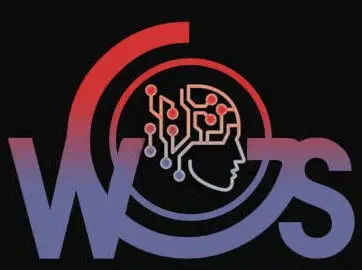A chatbot designed for attorneys and law firms can address several business problems, improving efficiency, client satisfaction, and overall operations. Here are some key problems it can solve:
1. Client Intake and Qualification
Problem: Manually collecting client information and determining case eligibility is time-consuming.
Solution: A chatbot can automate the intake process by asking relevant questions, collecting case details, and pre-qualifying leads. This ensures only viable cases are forwarded to attorneys, saving time and resources.
2. 24/7 Client Support
Problem: Clients often have questions outside of business hours, leading to delays in communication.
Solution: A chatbot can provide instant responses to common client queries (e.g., case status, billing, or procedural questions) at any time, improving client satisfaction and reducing the burden on staff.
3. Appointment Scheduling
Problem: Coordinating meetings between attorneys and clients can be inefficient and prone to errors.
Solution: A chatbot can integrate with calendars to schedule consultations, send reminders, and reschedule appointments, streamlining the process and reducing no-shows.
4. Legal Information and FAQs
Problem: Clients often ask repetitive questions about legal processes, fees, or documentation.
Solution: A chatbot can provide instant answers to frequently asked questions, freeing up staff to focus on more complex tasks.
5. Document Collection and Organization
Problem: Gathering and organizing client documents (e.g., contracts, evidence, or identification) can be tedious and error-prone.
Solution: A chatbot can guide clients through the process of uploading and categorizing documents, ensuring all necessary materials are collected efficiently.
6. Lead Generation and Conversion
Problem: Law firms often struggle to capture and convert leads effectively.
Solution: A chatbot can engage website visitors, collect contact information, and provide immediate assistance, increasing the likelihood of converting leads into clients.
7. Billing and Payment Queries
Problem: Clients frequently have questions about invoices, payment methods, or billing disputes.
Solution: A chatbot can handle billing inquiries, provide payment links, and escalate issues to the appropriate staff if needed.
8. Case Status Updates
Problem: Clients often call or email for updates on their cases, consuming valuable staff time.
Solution: A chatbot can provide real-time case status updates, reducing the need for manual follow-ups and improving client communication.
9. Compliance and Data Security
Problem: Ensuring compliance with legal and data protection regulations (e.g., GDPR, HIPAA) can be challenging.
Solution: A chatbot can be programmed to handle sensitive information securely and ensure compliance with relevant regulations.
10. Internal Knowledge Management
Problem: Attorneys and staff may struggle to quickly access internal resources or precedents.
Solution: A chatbot can serve as an internal assistant, helping staff locate documents, templates, or case law, improving productivity.
11. Multilingual Support
Problem: Law firms serving diverse clients may face language barriers.
Solution: A chatbot can offer multilingual support, enabling communication with clients in their preferred language and expanding the firm’s reach.
12. Reducing Administrative Overhead
Problem: Administrative tasks consume significant time and resources.
Solution: By automating routine tasks (e.g., answering FAQs, scheduling, or document collection), a chatbot can reduce administrative workload and lower operational costs.
13. Improving Client Retention
Problem: Clients may feel neglected if communication is slow or inconsistent.
Solution: A chatbot can maintain consistent engagement, provide timely updates, and ensure clients feel supported throughout their case.
14. Competitive Advantage
Problem: Law firms face increasing competition and need to differentiate themselves.
Solution: Implementing a chatbot can position a firm as tech-savvy and client-focused, attracting more clients and enhancing its reputation.
15. Data Analytics and Insights
Problem: Law firms may lack actionable insights into client behavior and preferences.
Solution: A chatbot can collect and analyze data on client interactions, helping firms identify trends, improve services, and make data-driven decisions.

Here are three immediate, low-hanging fruit use cases where an attorney (or law firm) could deploy a chatbot to improve efficiency, client engagement, and lead generation:
**1. ** 24/7 Client Intake & FAQ Chatbot
Industry: Personal Injury / Family Law / Estate Planning
Use Case:
A chatbot on the firm’s website can pre-qualify leads by asking basic questions (e.g., “Have you been injured in an accident?”, “Do you need a will or trust?”).
It can then schedule consultations directly into the attorney’s calendar (via Calendly/Zapier).
Immediate Benefit: Reduces missed leads after hours and filters out non-serious inquiries.
**2. ** Automated Document Collection & Reminders
Industry: Immigration Law / Real Estate Closings
Use Case:
A chatbot can guide clients through submitting required documents (e.g., “Upload your passport copy here”) via a secure portal.
It can send automated reminders for missing paperwork (e.g., “Your visa application is incomplete—click here to submit the remaining documents.”).
Immediate Benefit: Saves paralegal time and speeds up case processing.
**3. ** Instant Legal Q&A for Common Issues
Industry: Small Business Law / Landlord-Tenant Disputes
Use Case:
A chatbot answers basic legal questions (e.g., “How do I evict a tenant in [State]?”, “What should be in an LLC operating agreement?”).
After providing general info, it prompts users to book a paid consultation if their issue is complex.
Immediate Benefit: Positions the attorney as an authority while capturing leads.

Here’s a compelling, data-driven case for why law firms and attorneys should implement chatbots to reduce costs and improve efficiency, with concrete numbers to drive adoption:
Top Reasons & Hard Numbers for Legal Practices
1. 24/7 Lead Capture & Client Intake
78% of potential clients research attorneys outside business hours (Legal Trends Report)
Chatbots qualify leads instantly via automated intake forms, capturing 35% more cases (Clio)
Reduce missed calls/emails that cost firms 5,000–5,000–15,000/month in lost business
2. Slash Administrative Costs
40–60% of law firm calls are repetitive (fees, availability, process questions) – chatbots handle these at 0.10/callvs0.10/callvs5/call for staff
Save $30,000+/year by automating intake (equivalent to 1 full-time paralegal)
Reduce client onboarding time from 48 hours → 5 minutes with digital forms
3. Bill More Hours by Cutting Non-Billable Work
Attorneys spend only 29% of time on billable work (ABA)
Chatbots handle:
Scheduling (saves 5+ hours/week)
Payment reminders (reduces late payments by 50%)
Document collection (cuts intake time by 70%)
4. Improve Client Experience & Retention
82% of clients expect instant responses (LexisNexis)
Chatbots provide:
Real-time case updates (reduces status calls by 65%)
Automated court date reminders (cuts no-shows by 40%)
Secure document sharing (24/7 access)
5. Scalable Marketing & Practice Growth
Chatbots convert 28% more website visitors into leads (Lawmatics)
Automated follow-ups increase client retention by 25%
AI-powered chatbots can screen 100+ leads/day without staff
ROI Breakdown for a Mid-Sized Law Firm
| Metric | Without Chatbot | With Chatbot | Impact |
|---|---|---|---|
| Annual Intake Costs | $75,000 | $25,000 | $50K saved |
| Billable Hours Gained | 1,200 hrs/year | 1,800 hrs/year | +$150K revenue |
| Client Response Time | 24+ hours | Instant | Higher conversion |
| Missed Opportunities | 30% of leads | 10% of leads | 20% more cases |
| Paralegal Time on Admin | 60% | 30% | Focus on billable work |
Landing Page
